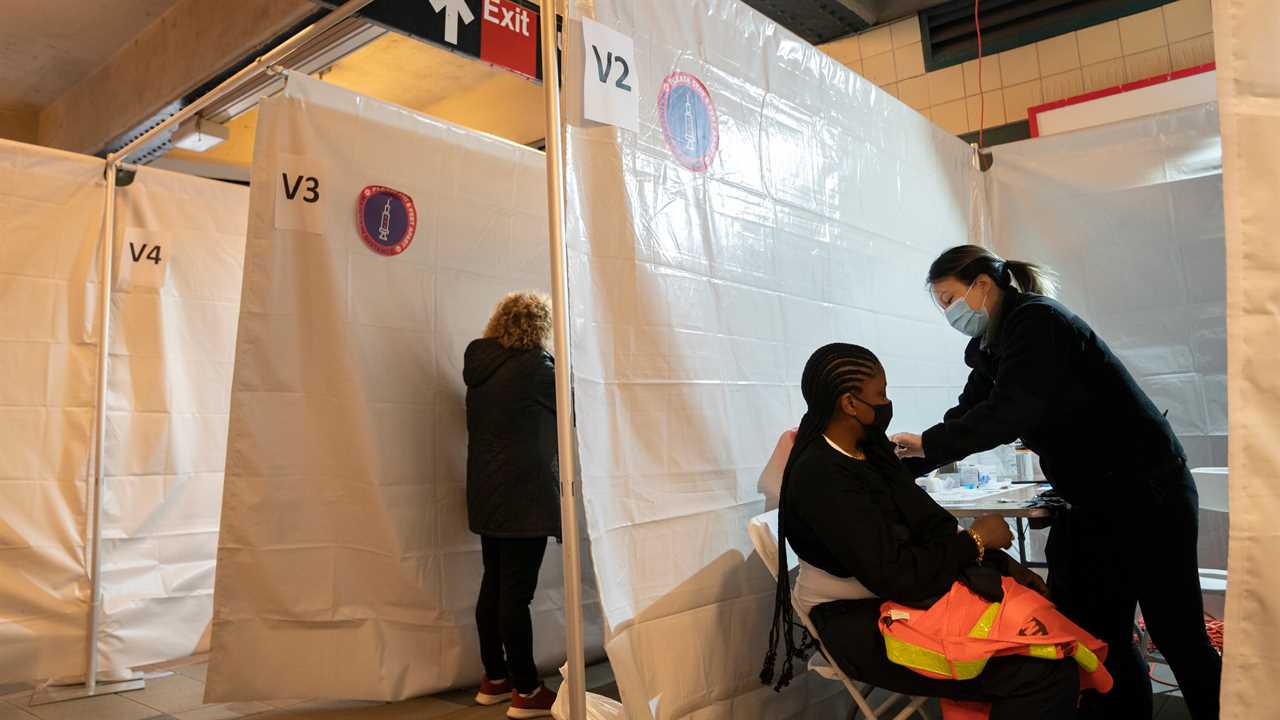
WASHINGTON — Federal regulators on Friday cleared a batch of vaccine that could furnish up to 15 million doses of Johnson & Johnson’s one-shot coronavirus vaccine, deciding they can be safely distributed despite production failures at the factory that ruined 75 million other doses.
The move brings the total number of Johnson & Johnson doses made at the Baltimore facility and cleared by the Food and Drug Administration for distribution in the United States to roughly 40 million. But Johnson & Johnson remains far short of its commitment to deliver 100 million doses to the federal government by the end of June. European Union officials have said the company is missing its delivery targets there, as well.
The vaccine cleared on Friday is not yet bottled, and the Biden administration’s plans for it remain unclear. But with new coronavirus cases dropping and the country awash in vaccines from two other authorized manufacturers, most new Johnson & Johnson doses produced in the United States are likely destined for export.
Johnson & Johnson has been unable to produce much of its vaccine since April, when regulators shut down the Baltimore factory, operated by Emergent BioSolutions, because of major production errors. Johnson & Johnson had been relying on Emergent, its subcontractor, to produce vaccine for use in the United States as well as to meet its commitments overseas while it expanded its own plant in Leiden, the Netherlands.
Even with the newly cleared batch, Johnson & Johnson remains nearly 40 million doses short of the 100 million doses called for in its federal contract. The F.D.A. did not disclose the precise number of doses cleared Friday, but multiple people familiar with Emergent’s operation said the batch amounted to as many as 15 million doses.
Also on Friday, European regulators approved the reopening of Johnson & Johnson’s Dutch plant, a piece of good news for the company amid its supply woes. “Today’s approval represents progress in expanding our global manufacturing network to supply our Covid-19 vaccine worldwide,” the company said in a statement.
The Baltimore factory is expected to remain shuttered for at least several more weeks while Emergent tries to bring it up to standard, according to people familiar with its operation who spoke on condition of anonymity. The F.D.A. said in a statement Friday that it was not yet ready to certify that the plant was following proper manufacturing practices.
After the discovery in March that Emergent workers had contaminated a batch of Johnson & Johnson’s vaccine with a key ingredient for AstraZeneca’s Covid vaccine being made at the same plant, regulators cited Emergent for a series of regulatory violations. Emergent was forced to throw out the equivalent of 75 million doses of Johnson & Johnson vaccine. European authorities discarded another 17 million more doses, and South Africa, which is desperate for vaccine, pulled two million more.
The Biden administration also had to pivot from relying on AstraZeneca doses to fulfill its pledge to donate vaccine to poorer nations, swapping in supplies from other makers. The F.D.A. has yet to rule on whether the equivalent of more than 100 million doses of both Johnson & Johnson and AstraZeneca vaccines produced by Emergent are suitable for use.
The F.D.A. has been conducting a painstaking review of every vaccine batch from the Emergent plant, matching up records of deviations from manufacturing standards with production lots to determine whether the batches can be released. In a letter to Johnson & Johnson released late Friday, the agency said the batch it was releasing was suitable for distribution even though the factory was not adhering to proper manufacturing practices at the time it was produced.
As deliveries of Johnson & Johnson’s vaccine stalled, the Biden administration ended up relying almost entirely on doses made by Pfizer-BioNTech and Moderna. With the pandemic now waning in the United States, demand for shots has plummeted. Johnson & Johnson has teamed up with the pharmaceutical giant Merck to make more doses, but the factory they intend to use is not expected to start operating until the fall.
Although the Johnson & Johnson vaccine was once considered a game changer in the nation’s vaccination campaign, state health officials have struggled to use up even the limited supply they received in the spring. Roughly 12.5 million people in the United States have taken the vaccine, accounting for a little more than half of the available supply, and millions of doses are set to expire by August. It is still being used in doctors’ offices and at smaller events, state officials said.
Enthusiasm for the Johnson & Johnson vaccine dropped in part because of a federally recommended pause in its use in April after a rare blood-clotting disorder was discovered in a few recipients.
But federal health officials are still hoping that surplus doses of Johnson & Johnson’s vaccine will be useful overseas, where vaccine doses remain desperately scarce. White House officials said this week that some countries had requested the vaccine because it is easier to store and transport than the others, and because some people prefer a one-shot regimen. The vaccine has been deployed in 27 countries so far.
On Thursday, Johnson & Johnson reported that early results of unpublished studies showed that its vaccine was effective against the highly contagious Delta variant, even eight months after inoculation. That was a reassuring finding for those who have gotten the company’s shot.
The news came after earlier data showed Pfizer’s and Moderna’s mRNA vaccines as effective against the Delta variant, which is much more contagious than previous variants and is expected to quickly become the dominant version of the virus in the United States. Because Johnson & Johnson’s vaccine rolled out more slowly, information about its effectiveness against variants has also lagged.
Did you miss our previous article...
https://trendinginthenews.com/usa-politics/pentagon-seeks-to-soften-blow-of-us-withdrawal-from-afghanistan






